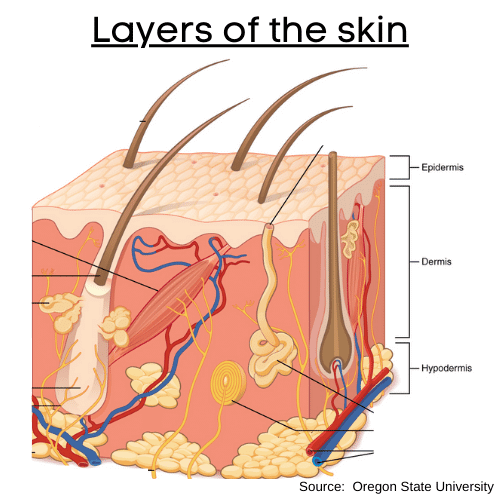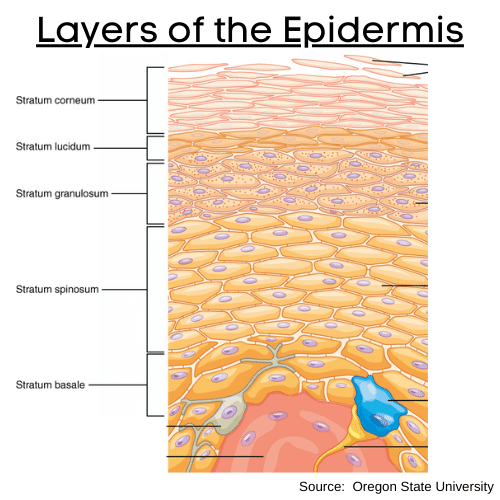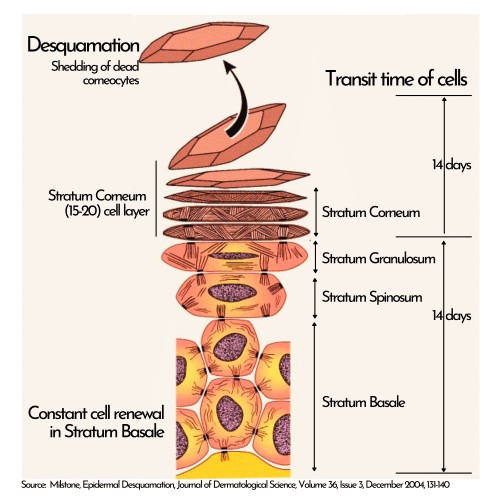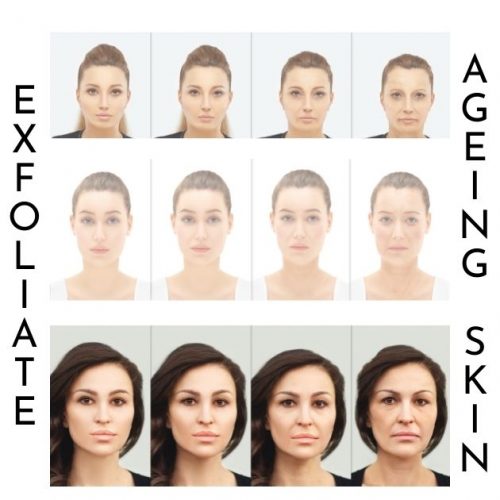If you are 21, then really, you don’t need to read this post.
But if you are 35+, keep reading.
As part of my education in skincare formulation, I made body scrubs for my willing/unwilling guinea pigs (friends and neighbours) to try out.
What I learnt was surprising: only 3 out of 10 women over 40+ age group exfoliated weekly. And less than 1% used a dry brush.
I was so shocked, and words cannot express my horror.
Really.
Today’s blog is about WHY you should exfoliate if your 35+
Short answer
Skin looks visibly younger and toned if you regularly exfoliate because you are getting rid of dead skin cells (called corneocytes) that give the appearance of scaliness, dry skin and a hard texture. Our skin is continually getting rid of dead cells, but the problem is that as we get older, these dead cells have a propensity to get larger and accumulate on the skin (almost “sticking” to it),
Even if you are an absolute fiend at moisturising, you may have noticed as you get older, for some reason, your skin feels permanently parched: it’s always dry, flaking and scaly. The reason for this would be you have accumulated corneocytes that are “stuck.”
Long answer
Remember when you were 21?
Your skin was glowing and youthful – no scaliness or dryness? An important reason for this is that the process of desquamation was normal in your skin – and today’s post is just explaining what desquamation is to you.
The skin…
The skin comprises of three layers: the epidermis (topmost), dermis (middle layer and houses collagen) and finally the hypodermis (which has adipose (fat) tissues)

But this is not the diagram I want you to focus on.
The epidermis is, in turn, made of 5 layers, and the most important from a skincare perspective is the STRATUM CORNEUM. Why? It is actually what is visible.

The SC is the body’s first barrier from the external environment and performs most of the skin barrier’s function. The two components of the stratum corneum, the extracellular lipid matrix and corneocytes (protein structure) perform different functions.
Cellular turnover in the epidermis: desquamation
Desquamation is a natural cellular process whereby our epidermis renews itself every 28 days. As we get older, this process slows down and (e.g.) can reach 40 days. This slowdown results in roughness, sallowness, uneven skin tone, hyper-pigmentation, lines and wrinkles.

Desquamation reduces as we get older
As we get older, “keratinisation” of the facial skin increases: corneocytes (dead cells) in the topmost layer of our skin (the Stratum Corneum), stick together more tightly becoming harder to remove.
Also, as we age, the skin’s natural ability to desquamate decreases.
As we get older, the rate of desquamation goes up from 14 days to 28 days + depending on the age of the person, area of skin, the health of the individual etc. (These “day” indications are only guidelines, and the rate can be more/less)
In addition, what happens when you age is:
· the size of the corneocytes in older people increases,
· while the lipids in the lamellar lipid matrix reduce with age.
Therefore the appearance of dry, scaly skin in the elderly (say 60+) takes on a pattern that you would never see in (say) a 21 year old.
What do I think?
The rate of stratum corneum turnover (or desquamation) can almost reduce by half (if not more) as we get older.
Standard processes by which skin keeps youthful (including the enzyme activity that facilitates desquamation) drastically reduces. The effect of reduced desquamation is made worse by the following age-related changes, which all make skin look older, drier, scalier:
- Stratum Corneum has fewer lipids in it (even though ceramides remain pretty much the same)
- Corneocytes in the Stratum Corneum are larger in size
- Barrier recovery in the Stratum Corneum takes longer than younger skin
- Effective rate of absorption of actives (e.g.,) caffeine being absorbed by an older person’s skin is LOWER THAN a younger person.
…However, the solution to this particular problem is simple: its external exfoliation whereby you intervene to remove dead skin cells.
Remember that exfoliation is an external process – you are not influencing the internal mechanics of your body – so you essentially need to embrace exfoliation as a lifelong pursuit if you want your skin to remain glowing, youthful and hydrated….
…As with everything, exfoliation will not prevent you from ageing, but it’ll certainly put a big dent in the process, and let’s face it, we need all the help we can get.
Exfoliation is such an easy fix to more youthful skin that I am surprised not more women do this.
I will highlight the different types of exfoliants that are available in the market in future blogs.
Any questions, please ask away.

1 thought on “Why is exfoliating so important?”
Very informative. Will await blog post on which exfoliant!